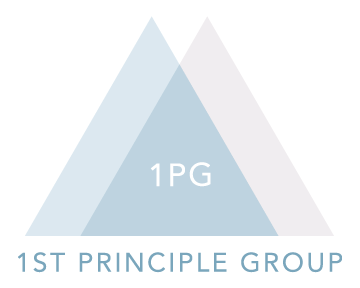How to Set Smart Goals
 I fear setting goals. Call it the Millennial part of me...I have some very vague and general goals for my life...but when it comes to making a plan and taking steps, I can freeze in indecision. Setting a goal means I have set up something I may not be able to meet. It is a fear of failure as much as it is a fear of not measuring up (even to a subjective/moveable standard!).
I fear setting goals. Call it the Millennial part of me...I have some very vague and general goals for my life...but when it comes to making a plan and taking steps, I can freeze in indecision. Setting a goal means I have set up something I may not be able to meet. It is a fear of failure as much as it is a fear of not measuring up (even to a subjective/moveable standard!).
Most often, this translates into a lot of thinking about changing...but very little doing. And the funny thing is - this can feel like we are actually doing the work. It’s deceptive. You might even feel exhausted with all the thinking about change you have done. But from the outside, there is no evidence that change is occurring.
This may sound cold and calculating - like it exists too deeply in behavioral terms. But I am finding more and more that this reaction for me is because I don’t like facing the reality that I sometimes do not get things done. I don’t like facing the reality that thinking about change, and taking steps toward change can be two very different things. I don’t like facing the reality that change is difficult, and stepping out takes risk.
So instead, I think about all the ways I could act, and hope a decision is made for me. Like the above quote, no wind is favorable to me - I’m tossed and turned with every gust.
In a group session this week, I challenged the members to think about motivation and what really drives us to grow and change. The research shows that external motivation works in the short run, but over the long haul, it’s not good enough to bring real and lasting change. So if you are internally motivated to reach for something...to grow in new ways...to take a risk that might fail but you think it’s right...how can you get there?
Set SMART Goals
In my industry, we talk about setting “SMART” goals. It’s a common acronym used by a lot of businesses to keep workers focused and driven, and for some of you it will seem almost too simple! Here’s how it breaks down:
- Specific
- Measurable
- Attainable
- Realistic
- Timely
More often than not, our goals are broad - “I want to get in shape.” You might really mean this, and you might really want this...but without having some tangible ways to track the goal, our motivation will suffer and the chances of real change and growth diminish.
We need to make goals that are Specific. It answers the 6 W’s (who, what, when, where, which, why) and forces us to really begin the process of focus. Once we make a goal specific, we want to make sure it is Measurable. If you want to get in shape - what does ‘in shape’ mean to you? The easiest way to determine if your goal is measurable or not is to ask, “How will I know when I’m done?” Measuring our goals is a double-edged sword. If you operate with a lot of shame, this is where you can get stuck in a “I’m not good enough” trap of comparison. It may take finding unique ways of measuring that remove this temptation (i.e. someone who is losing weight may stress about the numbers on a scale unproductively - a different measurement might be progress pictures to show how the weight loss is going).
We next want to make sure the goal is Attainable. If we set goals that we would never really attain, we’re setting ourselves up for failure. Does this mean we should not set goals that will challenge us? Absolutely not. In the process of working toward a goal, we can often develop skills and abilities we did not have before. We may be pushed to new levels of strength in an attempt to attain the goal. We will better know if we have struck a balance between these two if our goals are Realistic.
Realistic goals acknowledge where you are and where you are going. I’m not always the best assessor of my abilities and skills (I tend to undersell in an attempt to mitigate letting anyone down). As I’m setting realistic goals, I’m asking those who know me how they see me working toward that goal, what obstacles might prevent me from meeting it, where I might be missing something, etc. Again, this is not to remove challenges - an easy goal to meet requires little motivation and in the long run, this will actually hamper our efforts.
Lastly, we want to make goals that are Timely. This is often the most difficult one for me. If I set a deadline, I simultaneously know I will feel slightly anxious that I could not meet it, and I also know that I might wait until the last minute to get it done. But the point of setting a timeline is not to create the pressure of a deadline (though, again, that might be helpful for some). The point is to keep us focused and motivated toward a point set in the future. We are more motivated when we know there is an end in sight.
When setting SMART goals, we are pushed out of the temptation to try and think out our entire problem. Instead of figuring out each risk...each potential for failure...it encourages us to start taking steps and adapt to the process. For me, it is another reminder that movement really is a process. I’m not expected to get everything right the first go around. I’m not expected to have all the data before I begin.
The more I work with people, the more I see how common we are in our struggles for growth. We almost fear success and the work/sacrifice it may take to get there. Instead, let us encourage each other toward change and growth, setting goals that keep us focused on the road in front of us.
What goals do you need to set this week and how can making it a SMART goal help move you toward action?
